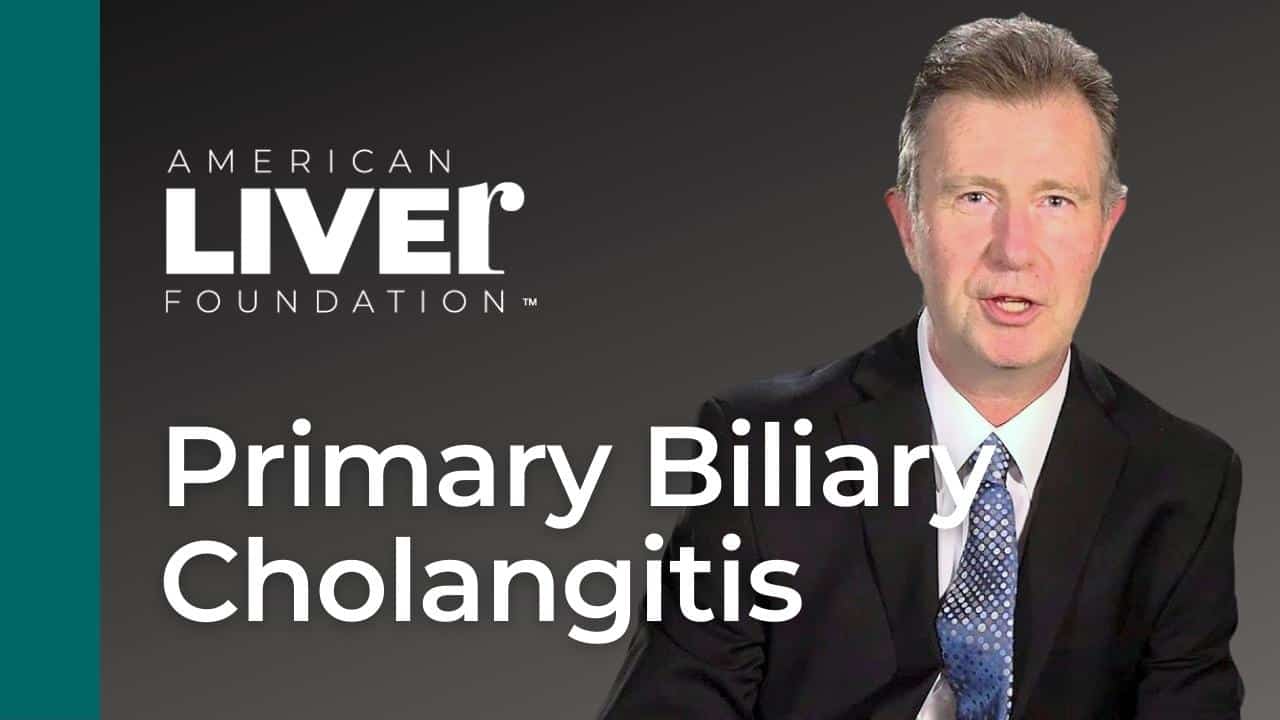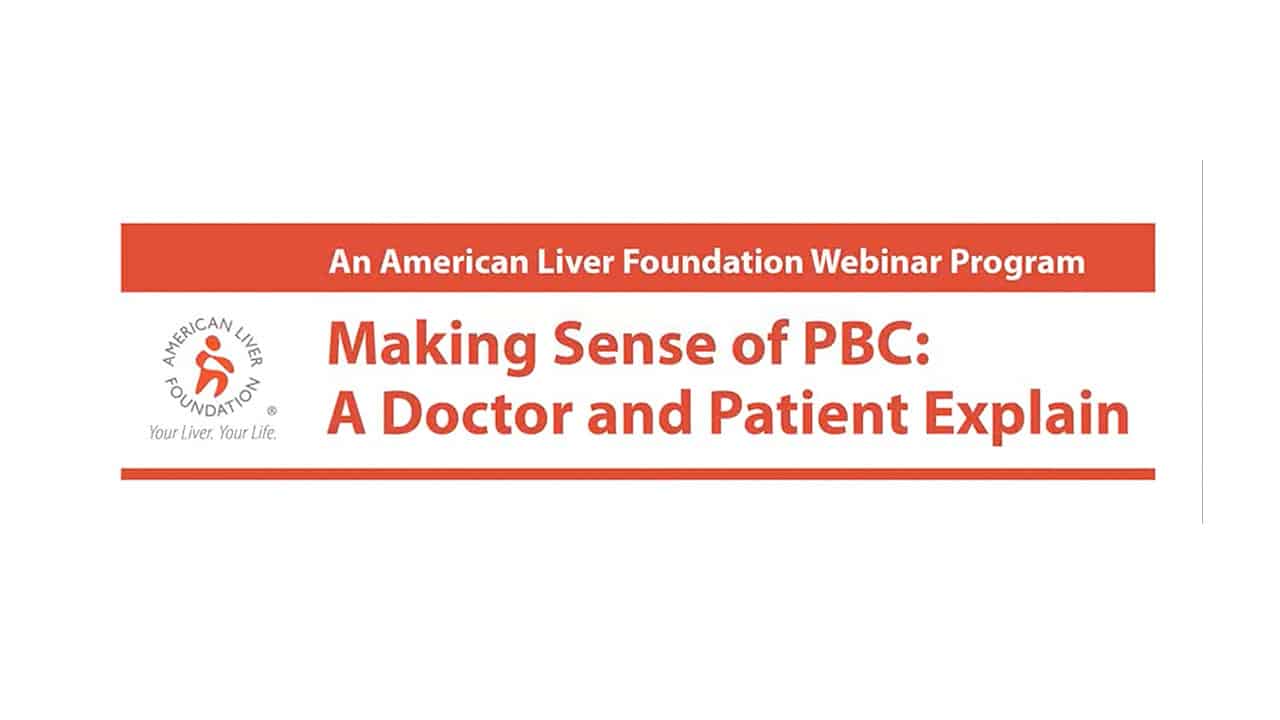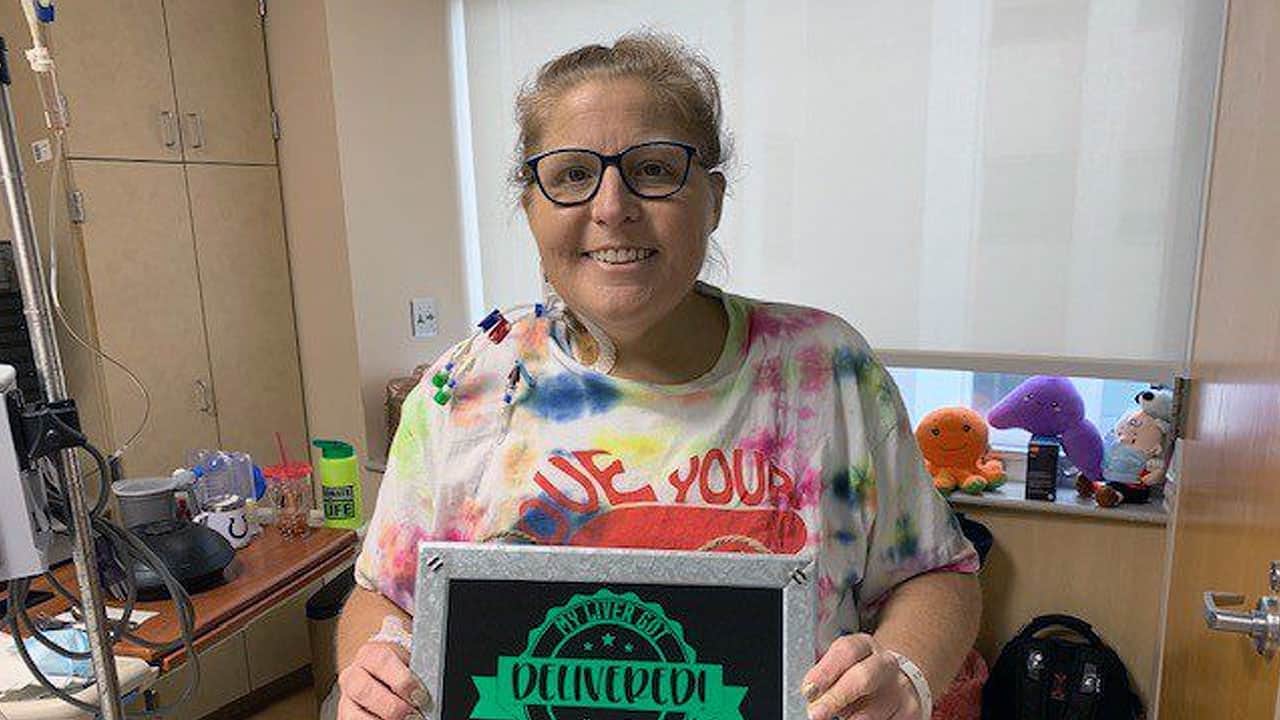Primary Biliary Cholangitis (PBC)
Primary biliary cholangitis (PBC), formerly known as primary biliary cirrhosis, is a chronic liver disease resulting from progressive destruction of the bile ducts in the liver – called the intrahepatic bile ducts.
Bile produced in your liver travels via these ducts to your small intestine where it aids in the digestion of fat and fat-soluble vitamins (A, D, E and K). When the ducts are destroyed, bile builds up in the liver contributing to inflammation and scarring (fibrosis).
Eventually this can lead to cirrhosis and its associated complications, as scar tissue replaces healthy liver tissue and liver function becomes increasingly impaired.
Facts at-a-Glance
- Primary Biliary Cholangitis (PBC) affects mostly women, but more men are now being diagnosed.
- Primary Biliary Cholangitis (PBC) is a chronic disease in which the small bile ducts in the liver become injured and inflamed and are eventually destroyed.
- Researchers estimate that in the United States, about 65 out of every 100,000 women have PBC.
- The disorder usually becomes apparent during middle age, initially affecting most individuals between the ages of 45 to 65 years.
- There is no cure for Primary Biliary Cholangitis (PBC), but there is medication available to manage the disease and slow down the progression of liver damage.
Information for the Newly Diagnosed
What are the signs and symptoms Primary Biliary Cholangitis (PBC)?
PBC may progress slowly and many people do not have symptoms, particularly in the early stages of the disease. The most common initial symptoms are fatigue and itching of the skin (pruritus). Other symptoms may include:
- Abdominal pain
- Darkening of the skin
- Small yellow or white bumps under the skin (xanthomas) or around the eyes (xanthelasmas)
- Individuals may also complain of having dry mouth and eyes, and bone, muscle and joint pain.
- As the disease progresses, symptoms of cirrhosis can develop including:
- Yellowing of the skin (jaundice)
- Swelling of the legs and feet (edema)
- Enlarged abdomen from fluid accumulation (ascites)
- Internal bleeding in the upper stomach and esophagus from enlarged veins (varices)
Thinning of the bones (osteoporosis) leading to fractures is another complication of Primary Biliary Cholangitis (PBC). While this is more common in late stages of the disease, it can occur earlier as well. In addition, people with cirrhosis are at increased risk for liver cancer (hepatocellular carcinoma).
What causes Primary Biliary Cholangitis (PBC)?
The cause of this disease is unknown. It may be related to problems in the immune system. Although Primary Biliary Cholangitis (PBC) is technically not a hereditary disease, meaning a disease caused by a specific gene or genetic defect that is passed from parent to child, there appears to be some family link. Primary Biliary Cholangitis (PBC) is more common among siblings and in families where one member has been affected.
How is Primary Biliary Cholangitis (PBC) diagnosed?
Because many people with Primary Biliary Cholangitis (PBC) have no symptoms, the disease is often discovered incidentally due to abnormal results on routine liver blood tests. Once Primary Biliary Cholangitis (PBC) is suspected, a blood test to check for antimitochondrial antibody (AMA) is done. This test is positive in nearly all people with Primary Biliary Cholangitis (PBC). A liver biopsy, where a small sample of liver tissue is removed with a small needle can help confirm the diagnosis. Imaging studies may be used to rule out other diseases, or to further evaluate patients once they have been diagnosed with Primary Biliary Cholangitis (PBC).
How is Primary Biliary Cholangitis treated?
Treating the disease
There is no cure for Primary Biliary Cholangitis (PBC), however, there are medications that can help slow disease progression and manage symptoms. Ursodiol (brand names Actigall, URSO 250, URSO Forte) is a naturally occurring bile acid (ursodeoxycholic acid or UDCA) that helps move bile out of the liver and into the small intestine. If used early enough, Ursodiol can improve liver function and may keep you from needing, or delay the need for a liver transplant. People with Primary Biliary Cholangitis (PBC) must take this medication every day for life.
UDCA is effective in more than 50 percent of patients, but up to 40 percent of patients do not achieve an adequate reduction in alkaline phosphotase (ALP) or bilirubin with UDCA, while 5-10 percent are unable to tolerate UDCA.
In May 2016, obeticholic acid (brand name Ocaliva) was approved for the treatment of Primary Biliary Cholangitis (PBC) in combination with UDCA in adults with an inadequate response to UDCA, or as a single therapy in adults unable to tolerate UDCA. Obeticholic acid increases bile flow from the liver and suppresses bile acid production in the liver, thus reducing the exposure of the liver to toxic levels of bile acids. Side effects of obeticholic acid may include increased itching and elevations in blood lipids.
Other alternative therapies in patients who are incomplete responders to UDCA include fenofibrate. Medications to suppress the immune system may also be prescribed including prednisone or azathioprine in Primary Biliary Cholangitis (PBC) patients with the “overlap syndrome” with autoimmune hepatitis. Liver transplantation is considered when medical treatment no longer sufficiently controls the disease. When a person has end-stage liver disease, a liver transplant is necessary for survival.
Treating the symptoms
Intense itching is one of the most common symptoms of Primary Biliary Cholangitis (PBC). Over-the-counter antihistamines like diphenhydramine (Benadryl) may be helpful. Other agents such as rifampicin, naltrexone, cholestyramine and sertraline may be prescribed.
Dry eyes can be relieved by using eye drops (artificial tears).
A dry mouth may be helped by sucking on hard candy or chewing gum, both of which increases saliva. There are also saliva substitutes and some medications that can be used.
Preventing complications
Blood tests to monitor for deficiencies in fat-soluble vitamins are often done. As Primary Biliary Cholangitis (PBC) progresses, some people need to replace the fat-soluble vitamins lost in fatty stools, so you may be put on vitamin A, D, E and K replacement therapy.
Since people with Primary Biliary Cholangitis (PBC) are at a higher risk for osteoporosis, calcium and vitamin D are usually prescribed. A baseline bone density is currently recommended at the time of initial diagnosis.
As the ability of the liver to function decreases over time, complications associated with cirrhosis will need to be addressed and treated. Screening for varices and liver cancer is often recommended.
What lifestyle changes may be helpful?
Maintaining a healthy lifestyle can help people with Primary Biliary Cholangitis (PBC) feel better, as well as relieve or prevent some symptoms associated with the disease. Upon diagnosis, your doctor may suggest the following:
- Start a reduced sodium diet if you have fluid overload (edema or ascites)
- Reduce fat intake if you are overweight or have fatty liver*
- Drink plenty of water
- Avoid or lower intake of alcohol
- Avoid undue stress when possible
- Start exercising, particularly walking
- Stop smoking
- Maintain good skin care
- Get regular dental examinations
Keep in mind that Primary Biliary Cholangitis (PBC) usually advances slowly over a period of years. Many people lead normal lives for years without symptoms, depending on how early the diagnosis is made. And while there is no cure, people are having good results slowing disease progression and living longer without complications by adhering to their medication regimen and maintaining a healthy lifestyle.
Who is at risk for Primary Biliary Cholangitis (PBC)?
Women are nine times more likely than men to develop Primary Biliary Cholangitis (PBC), meaning that women make up about 90% of Primary Biliary Cholangitis (PBC) cases.
The disease most often develops during middle age and is usually diagnosed in people between the ages of 35 to 60 years.
There appears to be a genetic component to developing Primary Biliary Cholangitis (PBC), as it’s more common among siblings and in families where one member has been affected.
Questions to Ask Your Doctor
- How severe is the liver damage?
- What treatment do you recommend? Will this slow down the progression of the disease?
- Will any medication be prescribed? What are the side effects?
- Should I change my diet?
- Are there any supplements you would suggest that I take?
- What can be done to relieve my symptoms?
- If cirrhosis develops, is transplantation my only option?
Support Groups
Primary Biliary Cholangitis (PBC) Support Group on Facebook
Visit the American Liver Foundation Primary Biliary Cholangitis support group on Facebook. For more details, click here…
PBC/PSC Support Group on Inspire
Visit the American Liver Foundation online support group at Inspire…
*Steatotic liver disease is the new name for fatty liver disease.
Video Library
Patient Stories
Related Links
The PBCers Organization is a wonderful source of education and support for those who suffer from Primary Biliary Cholangitis (PBC) and other autoimmune liver diseases. They offer many areas of education and support with almost 3,000 members worldwide.
Search for a Clinical Trial
Clinical trials are research studies that test how well new medical approaches work in people. Before an experimental treatment can be tested on human subjects in a clinical trial, it must have shown benefit in laboratory testing or animal research studies. The most promising treatments are then moved into clinical trials, with the goal of identifying new ways to safely and effectively prevent, screen for, diagnose, or treat a disease.
Speak with your doctor about the ongoing progress and results of these trials to get the most up-to-date information on new treatments. Participating in a clinical trial is a great way to contribute to curing, preventing and treating liver disease and its complications.
Start your search here to find clinical trials that need people like you.
*Steatotic liver disease is the new name for fatty liver disease.
Medically reviewed on April 2025.
Last updated on June 12th, 2025 at 01:42 pm










